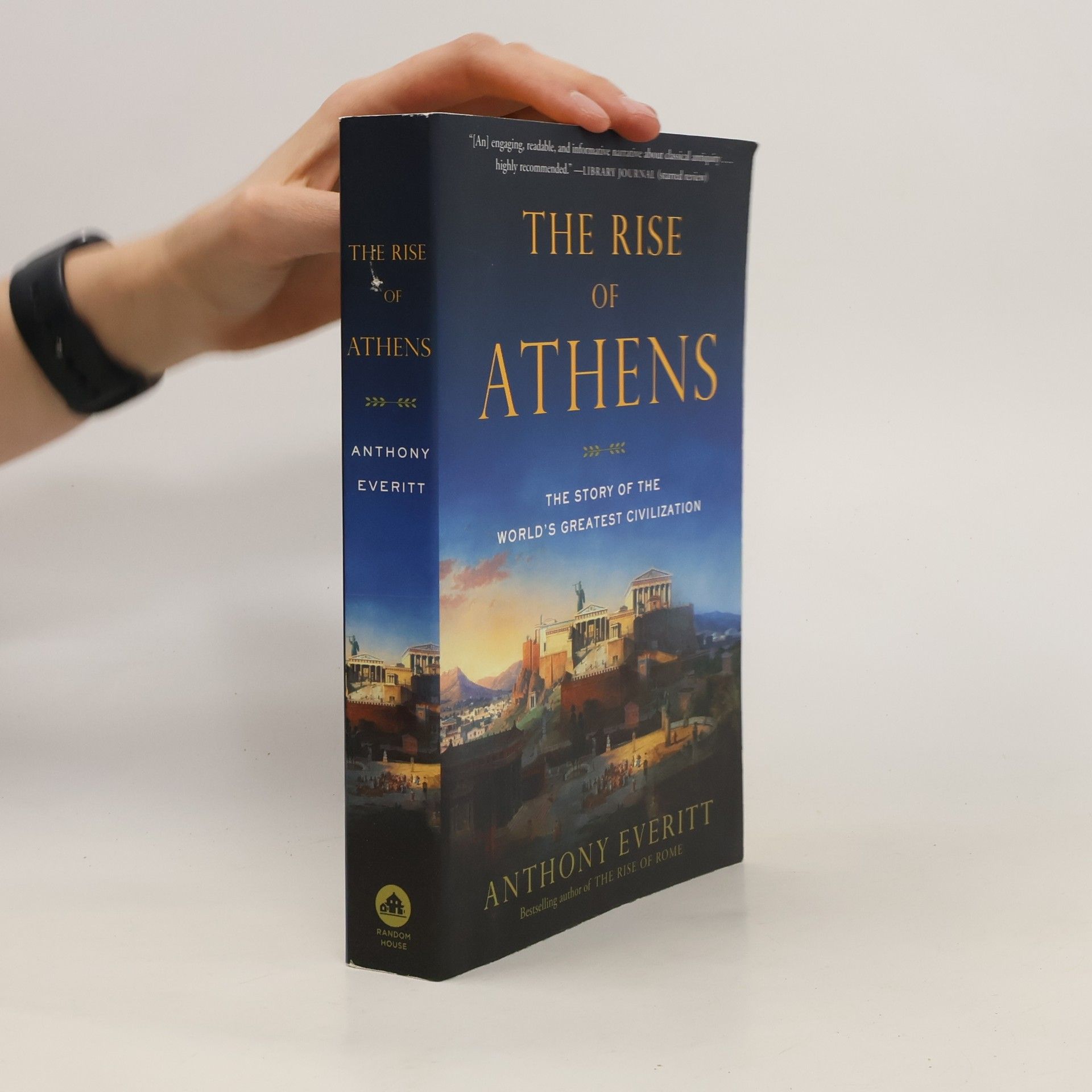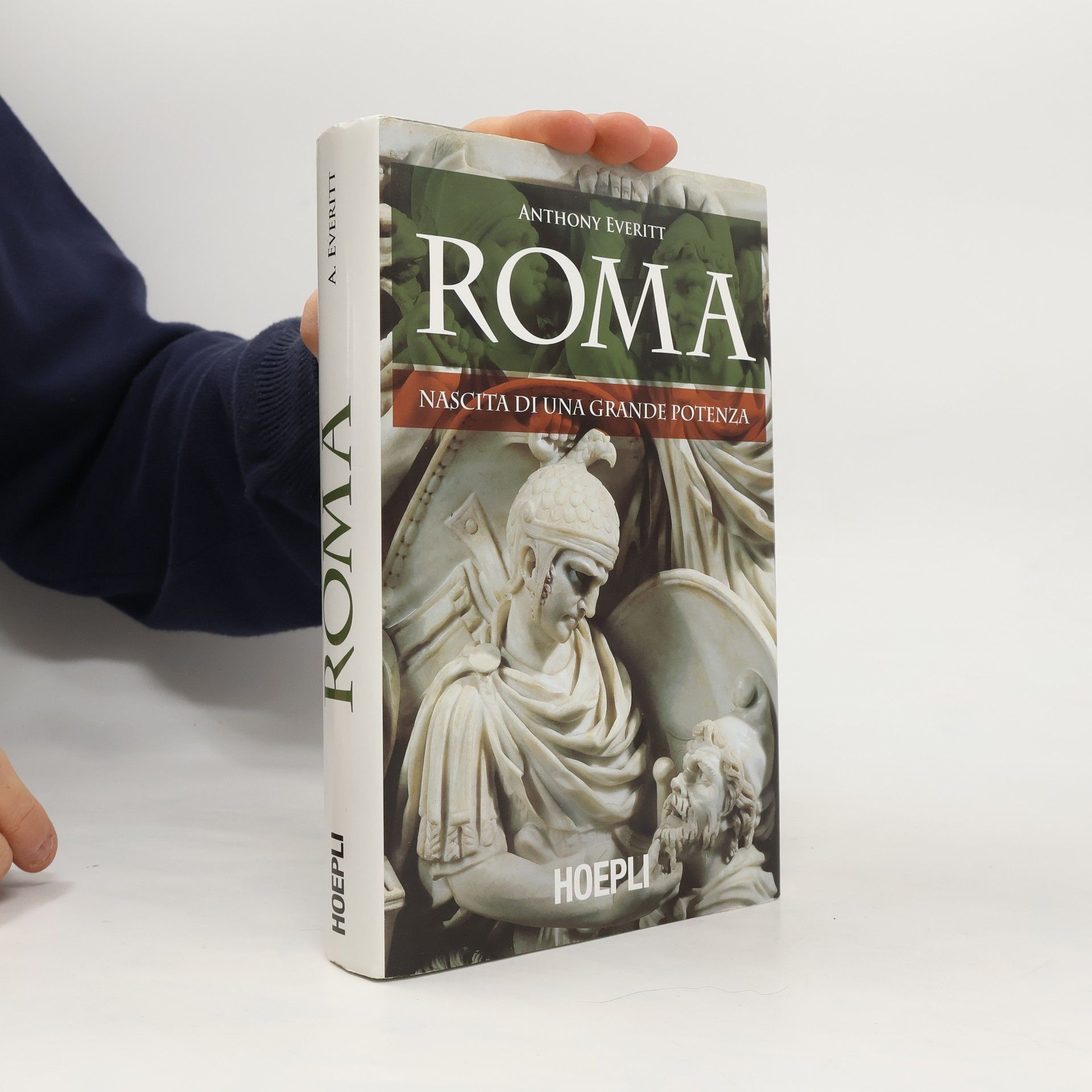Marcus Tullius Cicero: ein Politiker, der gleich zweimal an die Macht gelangte, ein brillanter Redner und Schreiber. Ciceros Reden und Ideen haben die Werte der europäischen Zivilisation zweitausend Jahre lang beeinflusst. Wir haben Zugang zu ihm durch Hunderte seiner Briefe, die ein Bild seines geschäftigen Wirkens als Anwalt und Politiker vermitteln und die historischen Ereignisse in seinem Leben spiegeln. Seine Biografie erzählt zugleich die spektakuläre Geschichte vom Niedergang der Römischen Republik: Wir erleben Cicero, wie er den vermeintlich unbestechlichen Brutus des Betrugs überführt, wie er eine sexuelle Eskapade des jungen Marcus Antonius beendet, wie er nach Julius Cäsars Ermordung Rom in einem Augenblick höchster Gefährdung stabilisiert und vergeblich den Bürgerkrieg zu verhindern versucht. Anthony Everitt greift in seiner Alltagsgeschichte ausgiebig auf Ciceros eigene Worte und die seiner Zeitgenossen zurück. Klar und lebendig entsteht das Bild einer Entwicklung, die den Herrscher aus der Provinz bis zu seinem tragischen Ende führt. Die Figur, die Anthony Everitt vorstellt, ist durch und durch menschlich, oft zaudernd, prahlerisch aus Unsicherheit und emotional trotz der fast stoischen Fassade. Cicero – Die lebensnahe Biografie des Mannes, dessen Name zum Inbegriff wurde für den Niedergang der römischen Republik.
Anthony Everitt Bücher
Anthony Everitt ist ein renommierter britischer Autor, dessen akademischer Hintergrund in englischer Literatur sein tiefes Engagement für die Künste geprägt hat. Er verfügt über ein tiefes Verständnis der römischen Geschichte, das in fesselnden Biografien und historischen Analysen zur Geltung kommt und die antike Welt beleuchtet. Everitts Schriften, die häufig in führenden Zeitungen erscheinen, zeugen von einem scharfen Intellekt und der Fähigkeit, wissenschaftliche Erkenntnisse einem breiten Publikum nahezubringen. Als angesehener Intellektueller und Pädagoge leistet er durch seine reiche Erfahrung und scharfsinnigen Kommentare einen bedeutenden Beitrag zur Kulturlandschaft.


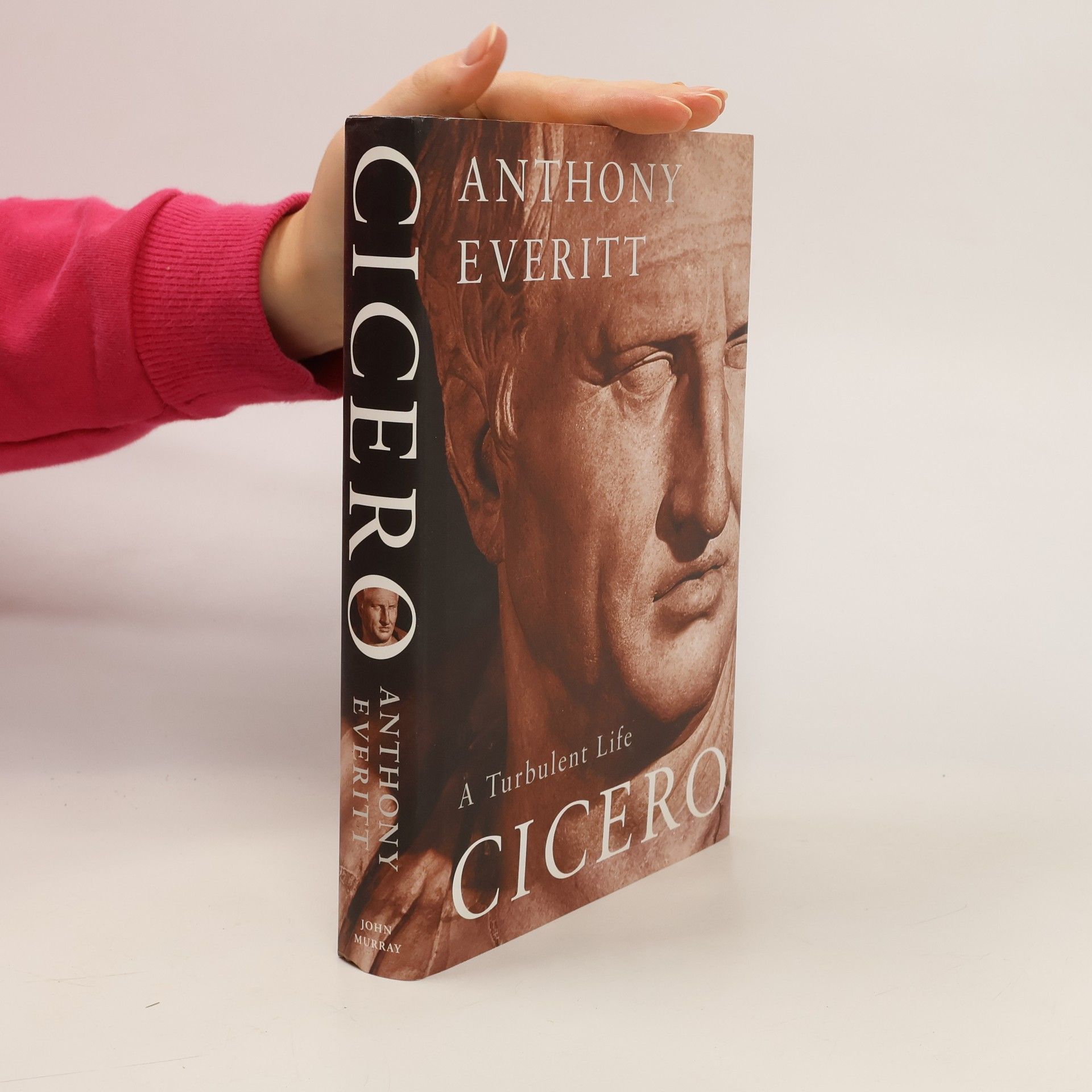
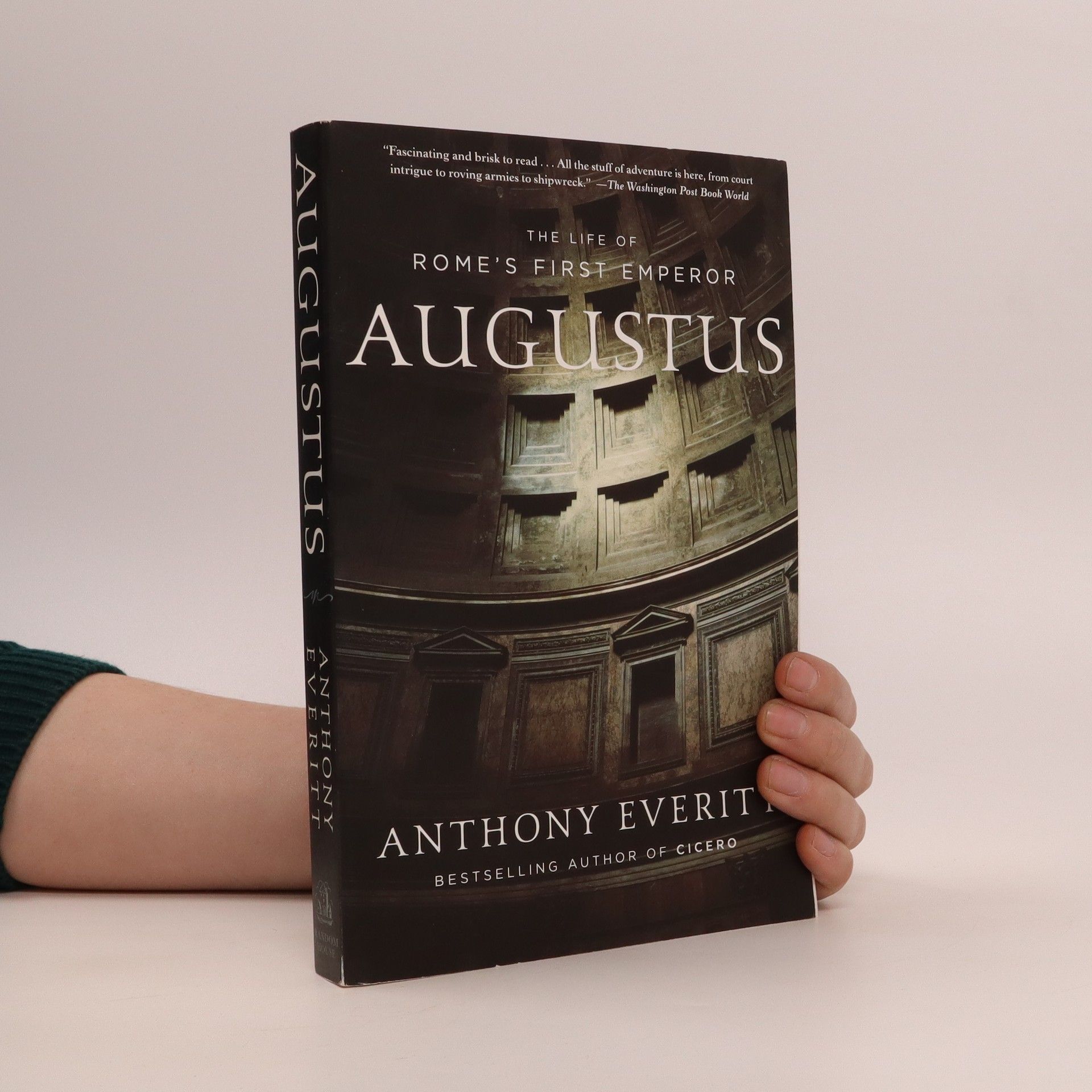
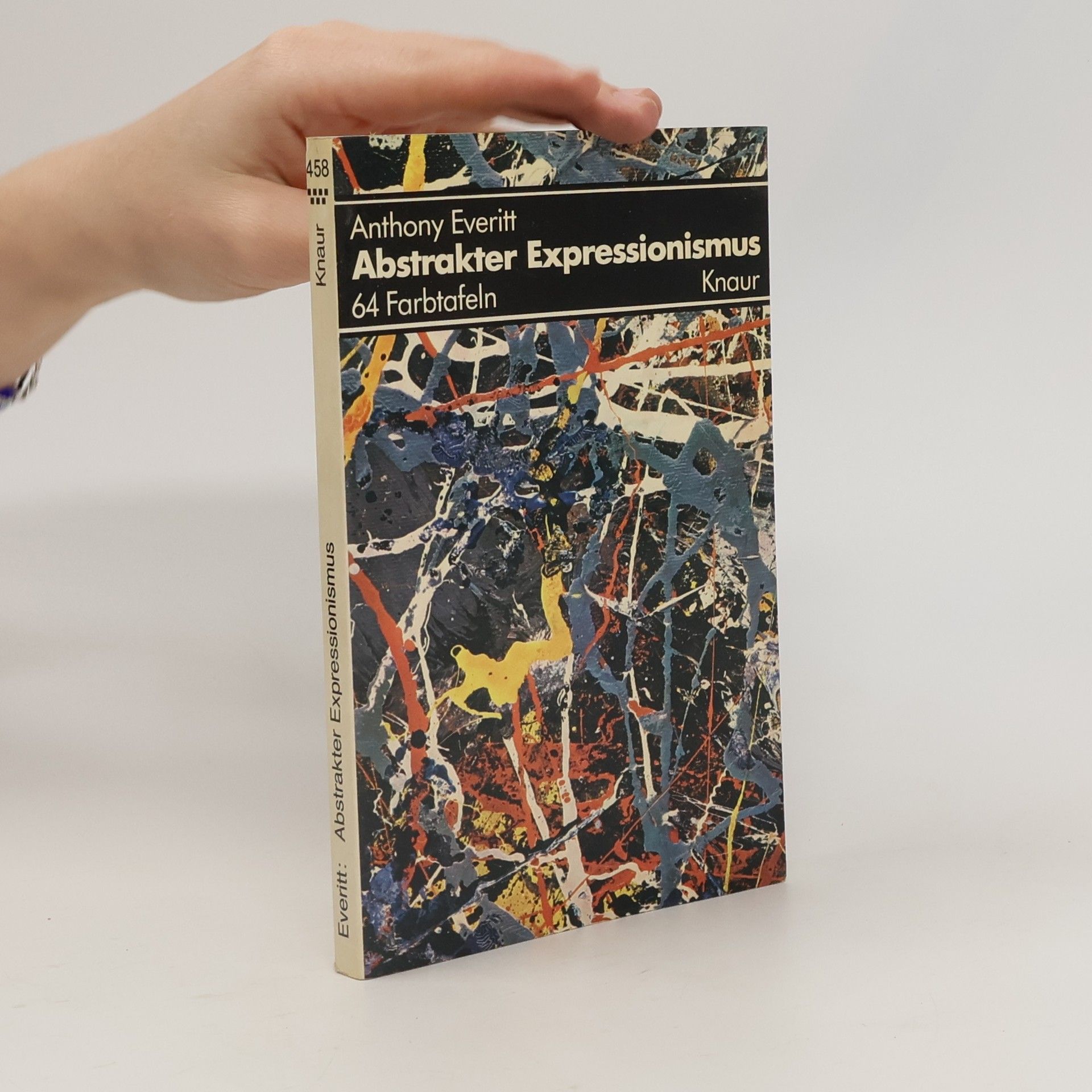

He found Rome made of clay and left it made of marble. As Rome's first emperor, Augustus transformed the unruly Republic into the greatest empire the world had ever seen. His consolidation and expansion of Roman power two thousand years ago laid the foundations for all of Western history to follow. Yet despite Augustus's accomplishments, very few biographers have concentrated on the man himself, instead choosing to chronicle the age in which he lived. In this study of power and political genius, biographer Everitt gives an intimate account of his illustrious subject. He takes some of the household names of history--Caesar, Brutus, Cassius, Antony, Cleopatra--and turns them into flesh and blood. At a time when many consider America an empire, this portrait of the greatest emperor who ever lived makes for enlightening reading.--From publisher description
Cicero. A Turbulent Life
- 346 Seiten
- 13 Lesestunden
"This is the biography of a brilliant orator and writer, and a politician who twice held the reins of power." "Cicero's speeches and ideas have influenced European civilized values for two thousand years. Personally, he is accessible to us in his hundreds of letters, many of them to his dear friend Atticus. We can follow his busy life as a lawyer and politician, and the historic events in which he took part, from day to day (sometimes from hour to hour) as he nervously prepares a speech to deliver in the Forum or to the Senate, detects the supposedly incorruptible Brutus in a financial scam, puts a stop to a sexual escapade of the young Mark Antony, steadies Rome at a moment of acute vulnerability following Julius Caesar's assassination, vainly tries to prevent civil war ... or at more private moments, as he entertains dinner parties with his wit or irons out a problem with his wayward nephew." "In this account of Cicero's career, from his provincial origins to his tragic end, as the Republican cause he revered crashed round his ears, Anthony Everitt makes full use of Cicero's own words and those of his contemporaries."--BOOK JACKET.Title Summary field provided by Blackwell North America, Inc. All Rights Reserved
An acclaimed biographer reconstructs the life of Alexander the Great in this magisterial revisionist portrait. Everitt judges Alexander's life against the criteria of his own age and considers all his contradictions.
Hadrian and the Triumph of Rome
- 448 Seiten
- 16 Lesestunden
Acclaimed author Anthony Everitt presents a compelling biography of Hadrian, arguably Rome's most successful emperor, in the first major account of his life in nearly a century. Born in A.D. 76, Hadrian ruled during a tumultuous period marked by the opening of the Colosseum and the eruption that buried Pompeii. Everitt vividly recounts how Hadrian brought a century of disorder and warfare to a peaceful conclusion, demonstrating that monarchy can coexist with effective governance. Known for his bravery and intellect, Hadrian was also an accomplished huntsman, poet, and philosopher. His reign was defined by two pivotal decisions: halting Rome's territorial expansion, which had become economically unfeasible, and establishing Athens as the empire's cultural center, elevating Greek art and learning in Roman life. Everitt delves into Hadrian's private life, including his loveless marriage to Sabina and his passionate yet tragic relationship with Antinous, a beautiful young Bithynian man. The biography also addresses Hadrian's war against the Jews, which has lasting implications for modern-day conflicts in the Middle East. Utilizing newly discovered archaeological evidence and thorough research, Everitt sheds light on Hadrian, one of history's most enigmatic figures.
Rome's decline and fall have long fascinated historians, but the story of how the empire was won is every bit as compelling. Emerging as a market town from a cluster of hill villages in the eighth and seventh centuries B.C.E., Rome grew to become the ancient world's preeminent power. Historian Anthony Everitt fashions the story of Rome's rise to glory into an erudite page-turner filled with lessons for our time. He paints indelible portraits of the great Romans--and non-Romans--who left their mark on the Roman world. He chronicles the clash between patricians and plebeians that defined the politics of the Republic. He shows how Rome's shrewd strategy of offering citizenship to her defeated subjects was instrumental in expanding the reach of her burgeoning empire. And he outlines the corrosion of constitutional norms that accompanied Rome's imperial expansion, as old habits of political compromise gave way, leading to violence and civil war. In the end, unimaginable wealth and power corrupted the traditional virtues of the Republic, and Rome was left triumphant everywhere except within its own borders.--From publisher description
Nero
- 400 Seiten
- 14 Lesestunden
The Roman emperor Nero is often viewed as the archetype of a bad ruler—cruel, vain, and incompetent. He committed incest with his mother, who had orchestrated his rise to power, and later murdered her. Infamously, he allegedly set fire to Rome while playing his lyre and subsequently constructed a grand palace on the ruins. Historians of his time despised him, and their negative accounts have persisted through history. Yet, a mystery lingers: after his downfall and suicide, flowers were mysteriously placed on his grave, suggesting he was loved by some. In this nuanced biography, Anthony Everitt explores the contradictions of Nero's reign, offering a fresh perspective on his life. He vividly depicts ancient Rome, from its crowded streets prone to fires to the political intrigues that could be deadly. Despite his heinous acts, Nero managed the empire effectively, achieving diplomatic success with the Parthian empire and overseeing the conquest of Britain, alongside the revolt of British queen Boudica. A patron of the arts, Nero had a passion for music and won the loyalty of the lower classes through grand spectacles. He envisioned a future for Rome, but his insecurities and guilt over his violent actions may have hindered his ability to lead.
Exploring the remarkable rise of a small city-state in ancient Greece, this account delves into how it transformed into one of history's most significant civilizations. The author, known for acclaimed biographies of notable figures like Cicero, Augustus, and Hadrian, provides a detailed narrative that highlights the cultural, political, and social dynamics that contributed to this extraordinary journey. The book offers insights into the unique aspects that set this civilization apart and its lasting impact on the world.
Le vicende storiche studiate a scuola, come la leggenda di Romolo e Remo e i sette re di Roma, rivivono in un racconto appassionante che mette in risalto la maestria di Anthony Everitt. L’autore descrive la trasformazione di Roma da villaggio agricolo a capitale di un vasto impero, evidenziando gli scontri tra patrizi e plebei, le guerre di espansione e la politica di inclusione verso i popoli conquistati. Con il tempo, le leggi costituzionali della Repubblica vengono trascurate e il compromesso politico lascia spazio alla violenza e alla guerra civile. Così, mentre Roma conquista il mondo, mina le virtù tradizionali che avevano sostenuto la società repubblicana. Il volume è ricco di ritratti di figure storiche indimenticabili come Cincinnato e Scipione l’Africano, e di intellettuali come Catone il Censore e Cicerone, che incarnano le virtù repubblicane. Everitt rilegge la storia della Roma repubblicana con uno sguardo al presente, mostrando come le lotte politiche e i conflitti di classe siano modelli per comprendere il nostro cammino civile. La narrazione, vivace e accessibile, riesce a risuonare con eventi contemporanei, rendendo la storia romana un argomento affascinante e rilevante.
